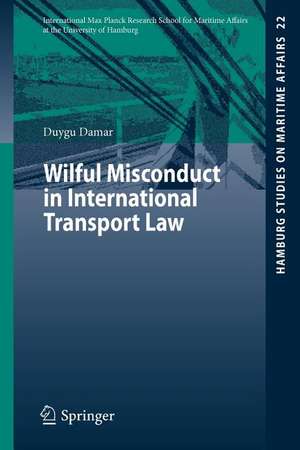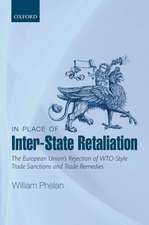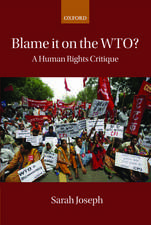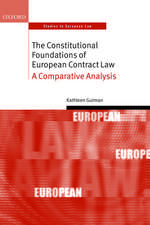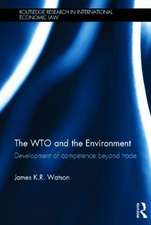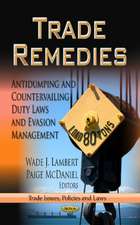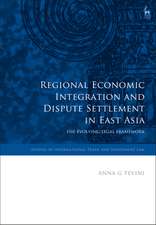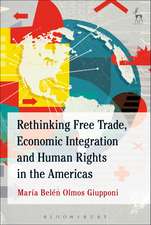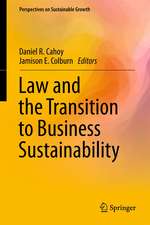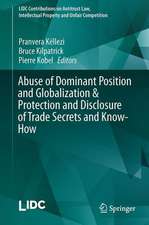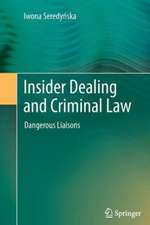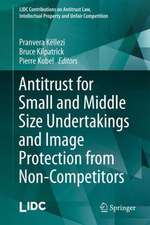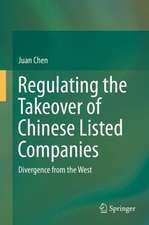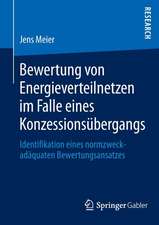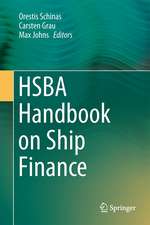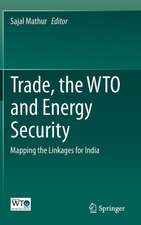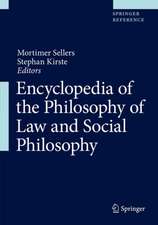Wilful Misconduct in International Transport Law: Hamburg Studies on Maritime Affairs, cartea 22
Autor Duygu Damaren Limba Engleză Paperback – 17 iul 2011
employed. A definition of "wilful misconduct", which can be found in later conventions regarding carriage of goods and passengers as well, was implemented in the Hague Protocol of 1955, amending the Warsaw Convention. However, the question as to exactly which degree of fault constitutes "wilful misconduct" has to date remained controversial and unanswered. This work seeks to answer this question. To this end, the historical background of the term, together with its function and role in marine insurance law, case law
and international transport law, are examined from a comparative perspective.
Din seria Hamburg Studies on Maritime Affairs
- 15%
 Preț: 648.24 lei
Preț: 648.24 lei - 18%
 Preț: 939.94 lei
Preț: 939.94 lei - 15%
 Preț: 642.18 lei
Preț: 642.18 lei - 18%
 Preț: 1111.85 lei
Preț: 1111.85 lei - 18%
 Preț: 949.42 lei
Preț: 949.42 lei -
 Preț: 386.81 lei
Preț: 386.81 lei - 15%
 Preț: 700.42 lei
Preț: 700.42 lei - 15%
 Preț: 631.07 lei
Preț: 631.07 lei - 15%
 Preț: 643.34 lei
Preț: 643.34 lei -
 Preț: 378.12 lei
Preț: 378.12 lei - 18%
 Preț: 944.82 lei
Preț: 944.82 lei - 18%
 Preț: 719.59 lei
Preț: 719.59 lei - 15%
 Preț: 639.73 lei
Preț: 639.73 lei - 15%
 Preț: 588.04 lei
Preț: 588.04 lei -
 Preț: 383.71 lei
Preț: 383.71 lei - 18%
 Preț: 946.24 lei
Preț: 946.24 lei - 15%
 Preț: 632.70 lei
Preț: 632.70 lei - 15%
 Preț: 640.06 lei
Preț: 640.06 lei - 15%
 Preț: 639.08 lei
Preț: 639.08 lei -
 Preț: 389.11 lei
Preț: 389.11 lei - 15%
 Preț: 645.28 lei
Preț: 645.28 lei - 15%
 Preț: 538.44 lei
Preț: 538.44 lei - 15%
 Preț: 638.89 lei
Preț: 638.89 lei -
 Preț: 381.98 lei
Preț: 381.98 lei - 18%
 Preț: 733.96 lei
Preț: 733.96 lei -
 Preț: 382.36 lei
Preț: 382.36 lei - 18%
 Preț: 728.91 lei
Preț: 728.91 lei - 15%
 Preț: 649.22 lei
Preț: 649.22 lei - 18%
 Preț: 944.99 lei
Preț: 944.99 lei - 18%
 Preț: 943.43 lei
Preț: 943.43 lei - 15%
 Preț: 526.18 lei
Preț: 526.18 lei - 15%
 Preț: 633.35 lei
Preț: 633.35 lei - 15%
 Preț: 636.45 lei
Preț: 636.45 lei - 18%
 Preț: 1005.74 lei
Preț: 1005.74 lei
Preț: 699.12 lei
Preț vechi: 822.50 lei
-15% Nou
Puncte Express: 1049
Preț estimativ în valută:
133.77€ • 140.05$ • 110.69£
133.77€ • 140.05$ • 110.69£
Carte tipărită la comandă
Livrare economică 07-21 aprilie
Preluare comenzi: 021 569.72.76
Specificații
ISBN-13: 9783642215087
ISBN-10: 3642215084
Pagini: 340
Ilustrații: XXII, 316 p.
Dimensiuni: 155 x 235 x 25 mm
Greutate: 0.48 kg
Ediția:2011
Editura: Springer Berlin, Heidelberg
Colecția Springer
Seria Hamburg Studies on Maritime Affairs
Locul publicării:Berlin, Heidelberg, Germany
ISBN-10: 3642215084
Pagini: 340
Ilustrații: XXII, 316 p.
Dimensiuni: 155 x 235 x 25 mm
Greutate: 0.48 kg
Ediția:2011
Editura: Springer Berlin, Heidelberg
Colecția Springer
Seria Hamburg Studies on Maritime Affairs
Locul publicării:Berlin, Heidelberg, Germany
Public țintă
ResearchCuprins
Introduction.- Historical Background: Limitation of Liability and Wilful Misconduct.- Roots of Wilful Misconduct.- Wilful Misconduct in Transport Law: First Time in an International Transport Convention: Convention for the Unification of Certain Rules relating to International Carriage by Air, 1929.- Carriage by Sea.- Conventions on Other Means of Transportation.- Proof & Concept of Fault: Causation and Proof.- Degrees of Fault and Wilful Misconduct.- Conclusion.
Textul de pe ultima copertă
The main rationale of the conventions on international transport law is to limit the liability of the carrier. However, an aspect common to these conventions is that in cases of "wilful misconduct" the carrier is liable without any financial limitation. "Wilful misconduct" denoting a high degree of fault is an established term in English law. The Convention for the Unification of Certain Rules relating to International Carriage by Air (Warsaw Convention) of 1929 was the first international convention on transport law where the term was
employed. A definition of "wilful misconduct", which can be found in later conventions regarding carriage of goods and passengers as well, was implemented in the Hague Protocol of 1955, amending the Warsaw Convention. However, the question as to exactly which degree of fault constitutes "wilful misconduct" has to date remained controversial and unanswered. This work seeks to answer this question. To this end, the historical background of the term, together with its function and role in marine insurance law, case law
and international transport law, are examined from a comparative perspective.
employed. A definition of "wilful misconduct", which can be found in later conventions regarding carriage of goods and passengers as well, was implemented in the Hague Protocol of 1955, amending the Warsaw Convention. However, the question as to exactly which degree of fault constitutes "wilful misconduct" has to date remained controversial and unanswered. This work seeks to answer this question. To this end, the historical background of the term, together with its function and role in marine insurance law, case law
and international transport law, are examined from a comparative perspective.
Caracteristici
Historical background of the term "wilful misconduct" in common law Detailed analysis of the term and its prerequisites The function of "wilful misconduct" in transport law, especially in carriage by sea, from a comparative perspective Comparative analysis of corporate liability and attribution of grave fault Detailed and comparative analysis of causation and proof issues - Comparison of fault degrees of common law and continental law Includes supplementary material: sn.pub/extras
